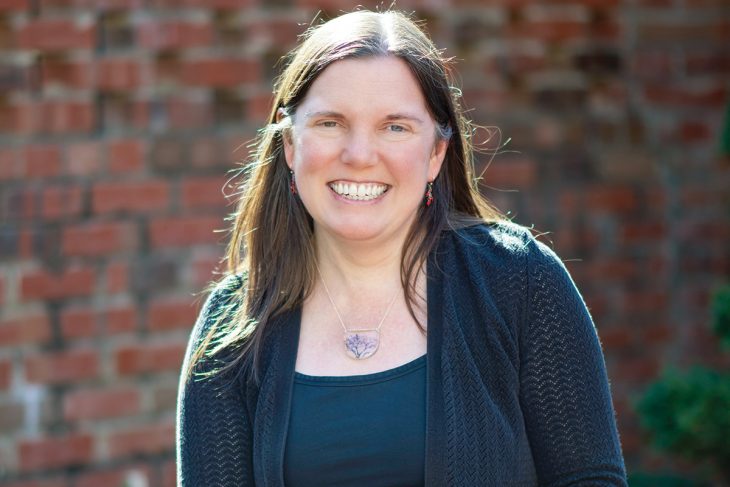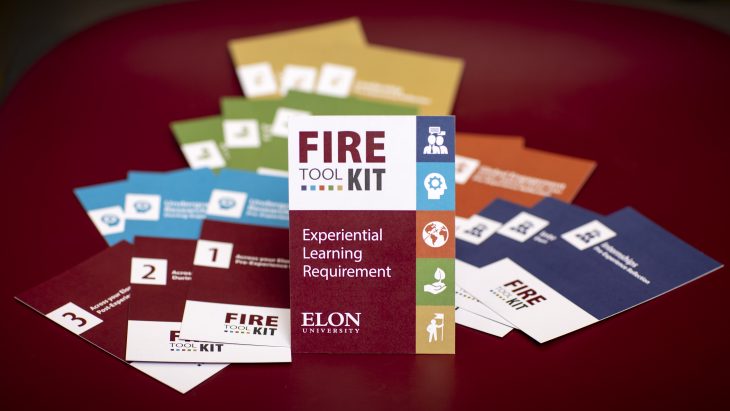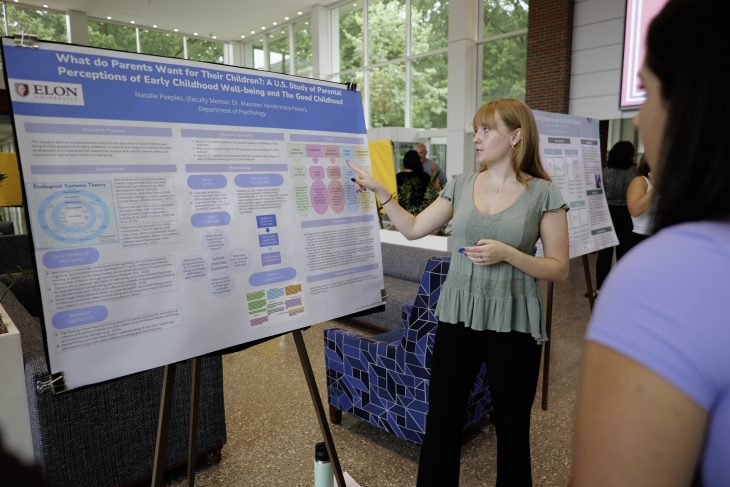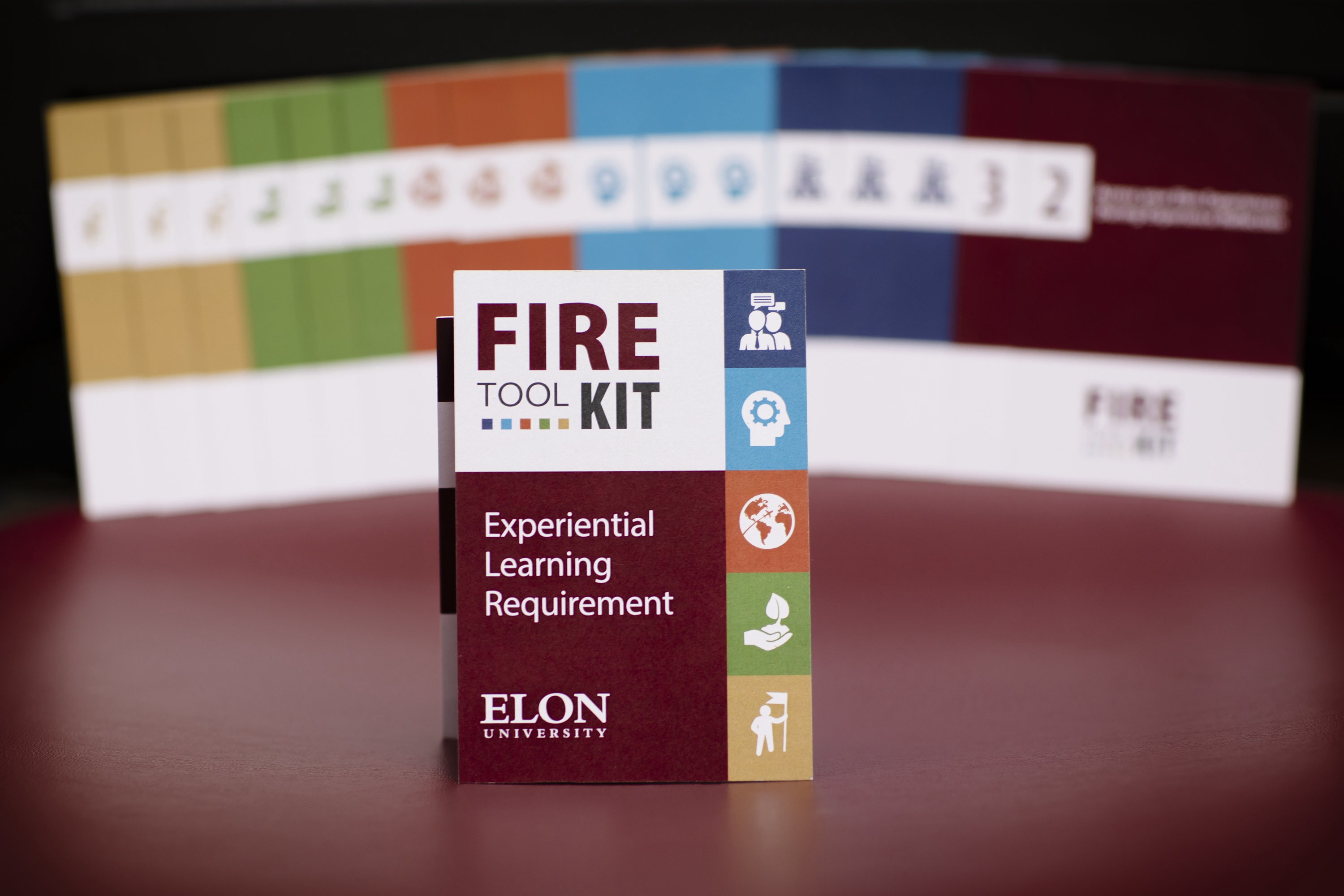The new FIRE Toolkit serves as a resource for Elon students before, during and after each of the five Elon Experiences.
As Elon students decide which of the five Elon Experiences they’d like to take part in during their time at the university, they will need to sort through many questions. Now, the new FIRE Toolkit from the Center for Engaged Learning (CEL) helps them ask those questions in conversation with other students, staff and faculty.
“The FIRE Toolkit is intended to help students be more intentional about which Elon Experiences they decide to participate in,” said Professor Jessie Moore, director of CEL. “It’s also intended to help them reflect on how those experiences fit together, how they fit with the rest of their university experience, and how they also connect to their future goals, professionally, civically and personally,”
A community-generated resource
The Elon Experiences include undergraduate research, global engagement, service (community-based learning), leadership and internships. There are multiple avenues for students to complete two or more of the experiences, also known as the Experiential Learning Requirement.

The Facilitating Integration and Reflection of the Elon Experiences (FIRE) Toolkit fits right into the palm of your hand and includes questions for students at different points in their Elon Experience, including before selecting the experience, during and afterward. The Toolkit is also available online, including in the form of a Google Doc that students can reference.
“We first started by asking all of the directors of the Elon Experiences to share questions that they either were already using or wanted to start using for students’ pre-experience, during experience or post-experience reflection,” said Moore on developing the Toolkit along with Paul Miller, professor of exercise science who previously served as associate provost for academic excellence and operations. “So, the initial questions came from the people who are specialized in each of those Elon experiences.”
Moore and Miller then took the questions, analyzed where they overlapped and tested them with student focus groups.
“It’s really been a community-generated resource to help students think more intentionally about the Elon Experiences they pick and then make meaning of how those experiences connect with the rest of their university life,” said Moore.
This year, every first-year student received a copy of the Toolkit through their Elon 1010 instructor and CEL has also shared the Toolkit with academic advisors. Abbreviated versions were available to families during Elon’s summer welcome events.

Eye-opening questions
Natalie Peeples ’26, a psychology major, Honors Fellow and Lumen Scholar, was first introduced to the toolkit at the first meeting for the 2024 Summer Undergraduate Research Experience (SURE).
“We talked about some of the pre-experience reflection questions, which were actually very eye-opening, and I wasn’t expecting it to be as eye-opening as it was,” said Peeples. “The very first question was, ‘What would you like to gain by pursuing a research experience?’ This was something that I had thought about coming into the entire experience, but, at the same time, I hadn’t talked about it with other people to this extent.”

The interaction between her peers, along with faculty, was something Peeples valued when using the toolkit.
“It offers something good when you’re talking to a peer about these kinds of things,” said Peeples. “It makes you feel more heard, more listened to and understood like you’re not the only one experiencing these things and excited about the experience.”
Fiona Hodge ‘26 used the FIRE Toolkit for her undergraduate research during SURE as well. She also led the SURE FIRE Starters opportunity, where the SURE students met to reflect on their experience using the Toolkit.
“During the conversations I led this summer, I got to not only use the toolkit but build off the questions and take them into new directions to better support my peers and to understand their experiences,” said Hodge. “It can seem intimidating to be asked to look at how you’re going to use an experience in the future when you’re still actively doing it, but it’s so important so that you can get the most out of it.”
Hodge, a psychology major, is now studying abroad in Germany, another Elon Experience, and she plans to use the toolkit to guide her.
“My abroad program is a full immersion experience where I only speak the native language for the entire duration of my stay,” said Hodge. “This is a very difficult but incredibly rewarding and exciting experience, so with the Toolkit, I can fully internalize what I’m learning to better utilize my unique experience for future grad school applications.”



